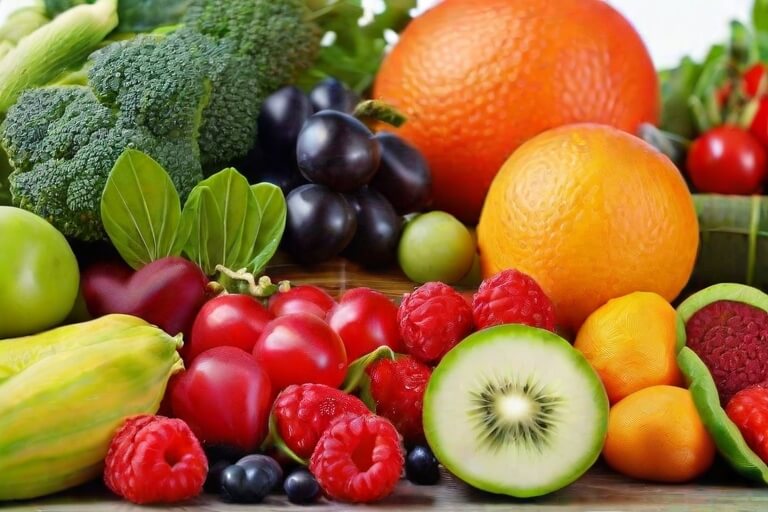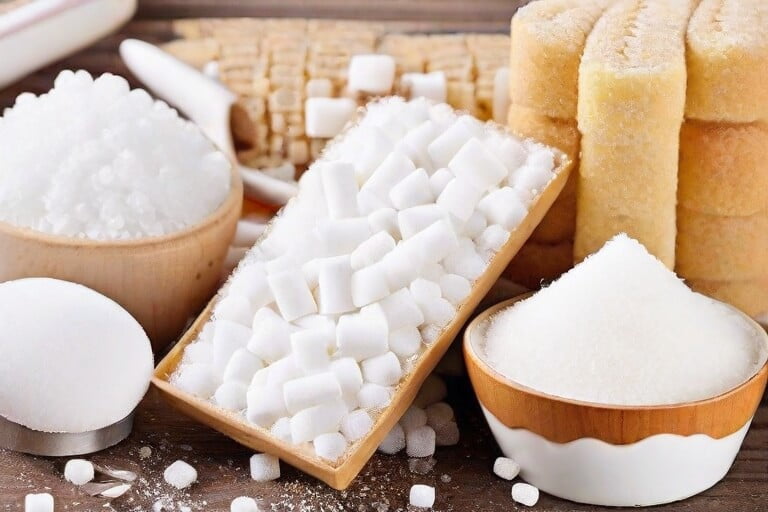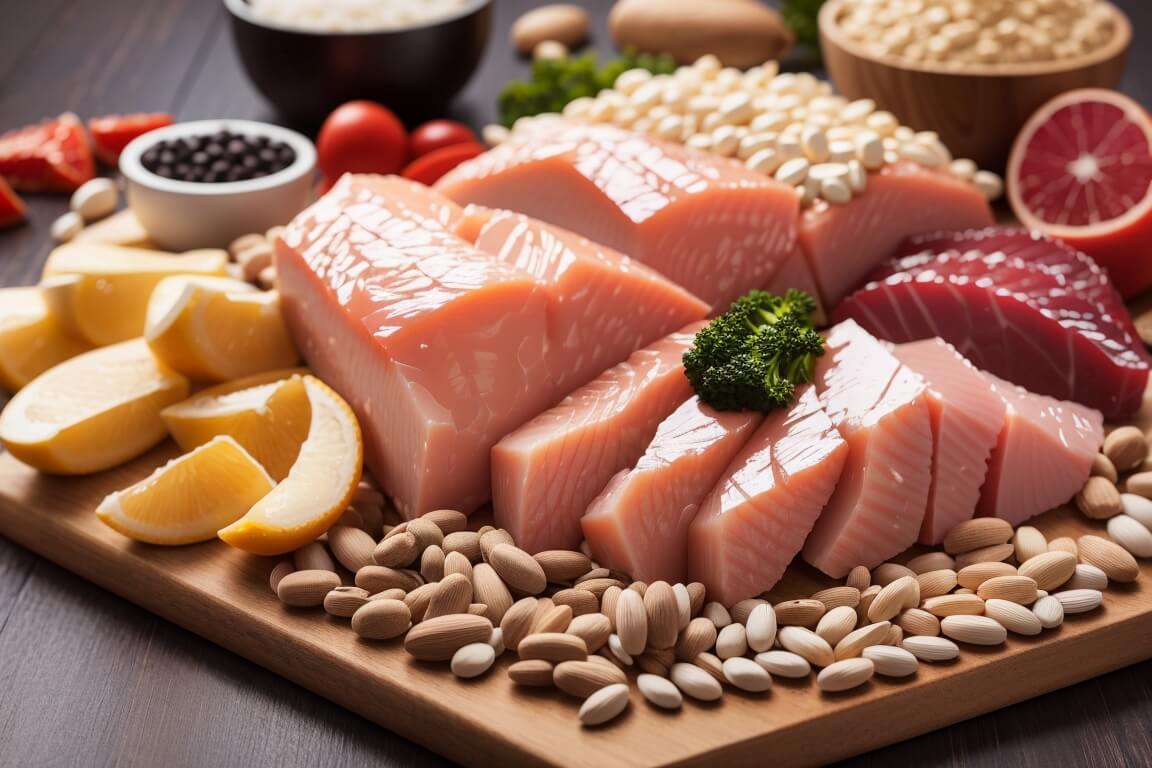Losing weight is one of the most common goals among people who want to improve their health and appearance. However, it’s not always easy to achieve this goal, as there are many factors that influence our weight, such as genetics, metabolism, eating habits, level of physical activity, stress, etc.
That’s why it’s important to follow some simple tips that can help you lose weight in a healthy way, without putting your health or well-being at risk. In this article, we’re going to share with you 7 simple tips for healthy weight loss that you can apply in your daily life.
Drink more water

Water is essential for our body to function, as it takes part in various chemical reactions, regulates body temperature, transports nutrients and oxygen, eliminates toxins, lubricates joints, etc. In addition, water can also help you lose weight:
- It helps control appetite, as it increases the feeling of satiety and prevents confusion between thirst and hunger.
- It helps speed up the metabolism, as it stimulates thermogenesis (the production of heat by the body). Helps prevent fluid retention, as it encourages the elimination of sodium and other waste products.
- It helps moisturize the skin, hair and nails, improving their appearance.
So drink at least 2 liters of water a day, preferably between meals. You can also vary the taste of water by adding fruit, herbs or natural spices such as lemon, mint, ginger, cinnamon, etc.
2. Eat more fruit and vegetables

Fruits and vegetables are rich in vitamins, minerals, antioxidants and fiber, which are essential for our health. What’s more, fruit and vegetables can also help you lose weight:
- They are low energy density foods, i.e. they have few calories in relation to their volume. This means that we can eat more of them without exceeding our calorie needs.
- They are high nutrient density foods, i.e. they have a lot of nutrients in relation to their weight. This means that we can obtain a greater variety of nutrients without consuming a lot of food.
- They are rich in soluble and insoluble fiber, which increases satiety, improves intestinal transit and regulates blood sugar and cholesterol levels.
Therefore, eat at least 5 portions of fruit and vegetables a day (one portion is equivalent to a cup or a handful), distributed throughout the day. You can eat them fresh or in the form of juices, salads, soups, etc.
3. Reduce your consumption of sugar and refined flour

Sugar and refined flour are foods that undergo a refining process that removes much of their nutrients and fiber. In addition, sugar and refined flour can also harm our weight and our health, because:
- They are high energy density foods, i.e. they have a lot of calories in relation to their volume. This means that we can easily consume more calories than we need, generating excess energy that is stored as fat in the body.
- They are low nutrient density foods, i.e. they have few nutrients in relation to their weight. This means that we can become deficient in vitamins, minerals and other essential compounds for our bodies.
- They are foods that cause spikes in blood glucose and insulin, which encourages the accumulation of fat, inflammation, premature ageing, the risk of diabetes, cardiovascular diseases, etc.
Therefore, reduce your consumption of sugar and refined flour and replace them with healthier options such as brown sugar, honey, stevia, wholemeal flour, oats, quinoa, etc.
4. Increase your intake of lean proteins

Proteins are essential macronutrients for the formation and maintenance of our muscles, bones, skin, hair, nails, hormones, enzymes, antibodies, etc. In addition, proteins can also help you lose weight:
- They are foods that require more energy to be digested and absorbed by the body, increasing calorie expenditure.
- They increase satiety, reducing hunger and the desire to eat sweets and carbohydrates.
- They are foods that preserve muscle mass, preventing the loss of muscle that occurs during the weight loss process.
Therefore, increase your intake of lean proteins, i.e. those that are low in saturated fat and cholesterol. Some sources of lean protein are: fish, skinless chicken, eggs (especially the whites), skimmed milk and dairy products (cottage cheese, natural yogurt), legumes (beans, lentils, chickpeas), soy and dairy products (tofu, soy milk), etc.
5. Exercise regularly

Physical exercise is one of the pillars of a healthy life and weight loss. The benefits of physical exercise are numerous, as they:
- Increase calorie expenditure, helping to burn fat accumulated in the body.
- Improve physical conditioning, endurance, strength, flexibility, coordination, balance, etc.
- Improve blood circulation, tissue oxygenation, cardiac and respiratory function, etc.
- Improve mood, self-esteem, confidence, motivation, etc.
- Reduce stress, anxiety, depression, etc.
So exercise regularly, at least three times a week, for at least 30 minutes each session. You can choose the type of exercise you like best or that best suits your level and your goal, such as walking, running, cycling, swimming, dancing, weight training, pilates, yoga, etc.
6. Sleep well

Sleep is fundamental to our physical and mental health, as it is during sleep that our body recovers from the day’s activities and prepares for the next day. In addition, sleep can also influence our weight:
- It regulates the hormones that control appetite and metabolism, such as leptin (which reduces hunger) and ghrelin (which increases hunger).
- Promotes the growth and maintenance of muscle mass, which is important for increasing calorie expenditure at rest.
- It prevents sleep disorders that can cause changes in mood, concentration, memory, immunity, etc.
So get a good night’s sleep every night, following a regular routine of schedules and habits that encourage quality sleep. Some tips are: avoid caffeine, alcohol and nicotine before bed; avoid lights and noise in the bedroom; avoid using electronic devices such as cell phones, computers or TV before bed; do relaxing activities such as reading a book or listening to soft music before bed; etc.
7. Have a positive attitude

The last tip for healthy weight loss is to have a positive attitude towards your goal and your weight loss process. This means:
- – Setting realistic and achievable goals that are compatible with your body and your lifestyle.
- Celebrating every achievement and progress you make, recognizing your effort and your merit.
- Don’t compare yourself to other people or to unrealistic standards of beauty or thinness.
- Don’t blame or punish yourself for any slip-ups or difficulties you face.
- Seek support and encouragement from people who love you and respect you for who you are.
- Seek professional help if necessary, such as a doctor, nutritionist, psychologist, physical educator, etc.
- Remember that losing weight in a healthy way is a gradual and continuous process that requires patience,
Conclusion
Healthy weight loss is possible if you follow a few simple tips that can make a difference to your day-to-day life. In this article, we share with you 7 simple tips for healthy weight loss, which are:
Drink more water
Eat more fruit and vegetables
Reduce your consumption of sugar and refined flour
Increase your intake of lean proteins
Exercise regularly
Sleep well
Have a positive attitude
Remember that these tips are just general guidelines and that each person has their own needs and particularities. That’s why it’s important to consult a health professional before starting any weight loss program, to ensure its safety and effectiveness.
We hope you enjoyed this article and that it was useful to you. If you have any questions, suggestions or opinions, please leave a comment below. We’d love to know what you think about this topic. Thanks for your attention and see you next time! 😊
We hope this article has been useful and informative for you. Leave your comment below and follow us on facebook and pinterest for more tips
